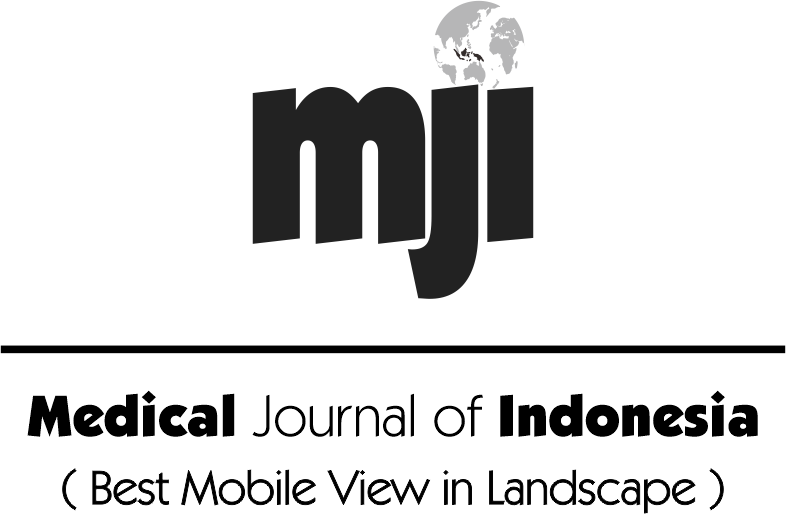“New technology is not good or evil in and of itself. It’s all about how people choose to use it.” (David Wong)
The application of artificial intelligence (AI) in the health sector has grown vastly in the last few years. AI that uses natural language processing to create humanlike conversational dialogue has been developed and referred to as an AI chatbot. ChatGPT (OpenAI, USA) has been the most popular AI chatbots since 2022. This AI chatbot can respond to any questions and compose various written content, including articles or essays, in (mili)seconds,1 speeding up the writing process of scientific articles, including medical science. Many tutorials on creating scientific articles using AI chatbots are widely available on the internet to help various levels of scholars, including students (high school, undergraduate, post-graduate), workers in many fields, and us as authors and scientists.
A significant issue arising from using AI chatbots is whether the AI chatbot can replace human factors in writing scientific articles. The author tried to ask, “Can ChatGPT replace manuscript writing?” in ChatPGT. The ChatGPT has acknowledged itself by answering, “While ChatGPT can certainly assist with manuscript writing by generating ideas, providing research assistance, suggesting structure, offering language refinement, and even providing feedback, it cannot fully replace the entire process of manuscript writing.” ChatGPT will never replace human factors, such as human expertise, creativity, originality, contextual understanding, critical evaluation, and ethical considerations, as these factors still require a depth of human thinking beyond technology.2 Thus, all authors should be aware of this limitation of any AI chatbots and include authors’ expertise in AI-assisted manuscripts.
Other concerns have risen regarding the potential publication ethical implications, such as plagiarism and duplication.1 The absence of references/sources in the recent version of ChatGPT’s responses raises concerns of potential plagiarism, as ideas may be interpreted differently without proper acknowledgment of the initial source. Consequently, authors are advised against directly incorporating ChatGPT search results into their scholarly works and to add detailed references to ensure ethical standards including the thorough reading all citations of sources. Then, the author should add all these references in a manner to acknowledge previous ideas.
Since 2024, the International Committee of Medical Journal Editors has recommended that all journals should require authors to disclose whether they used any AI-assisted technologies in the production of the submitted work in the acknowledgment section. The AI chatbots cannot be authors even though they can help authors generate novel ideas or topics.3 Many tools are available to detect AI-assisted and human-written content, yet these tools still need help differentiating content developed by most recent AI chatbots.4 Even though these AI-detector tools still continuously need improvement, applying these tools in journals can be initiated to screen AI-assisted articles.
The use of an AI chatbot, like other latest technology, inevitably presents disadvantages along with advantages in its use.5 Based on personal experience, an AI-chatbot is very useful in finding new knowledge and terms or generating an idea for the early stage of article writing. Thus, the author should only use AI chatbots to brainstorm ideas or generate topics during the writing part. Furthermore, AI chatbots can help authors save more time enhancing articles’ quality by correcting grammar, style, and vocabulary compared to the manual method of finding synonym online. In conclusion, we should balance the use of this highest technology, such as AI chatbots, while improving the efficiency of writing an article to minimize the possibility of publication ethics violations.
Acknowledgment
The author declares the use of ChatGPT® for generating ideas for this editorial.
REFERENCES
- Hetler A. Definition of chatgpt [internet]. New York: TechTarget; 2023 Dec [cited 2023 Mar 31]. Avalaible from: https://www.techtarget.com/whatis/definition/ChatGPT
- Jeyaraman M, Ramasubramanian S, Balaji S, Jeyaraman N, Nallakumarasamy A, Sharma S. ChatGPT in action: Harnessing artificial intelligence potential and addressing ethical challenges in medicine, education, and scientific research. World J Methodol. 2023;13(4):170-8.
- International Committee of Medical Journal Editors. Defining the role of authors and contributors. [Internet]. Vancouver: International Committee of Medical Journal Editors; [cited 2024 March 31]. Available from: https://www.icmje.org/recommendations/browse/roles-and-responsibilities/defining-the-role-of-authors-and-contributors.html
- Elkhatat AM, Elsaid K, Almeer S. Evaluating the efficacy of AI content detection tools in differentiating between human and AI-generated text. Int J Educ Integr. 2023;19.
- Song C, Song Y. Enhancing academic writing skills and motivation: assessing the efficacy of ChatGPT in AI-assisted language learning for EFL students. Front. psychol. 2023;14:1260843.
